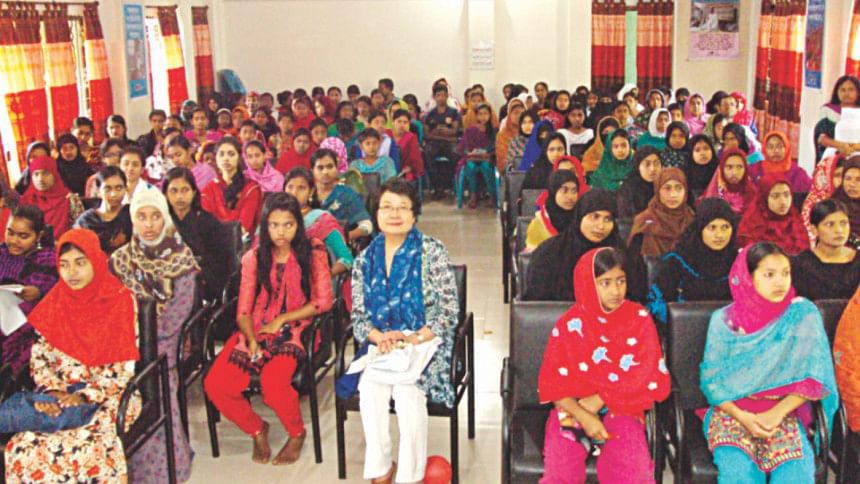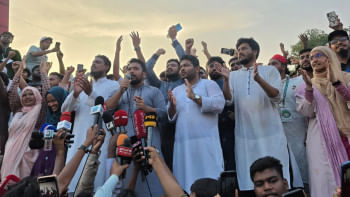From Japan with love

At home in Japan, 88-year-old Hiroko Kobayashi still teaches ikebana, the Japanese art of flower arranging. With more than 40 years experience in the subject, and also an experienced professional photographer, she surely has an eye for artistic beauty. Yet in Jhenidah and Panchagarh districts it is a different form of beauty for which she is held in high regard: her generosity. Of her own initiative, the octogenarian financially supports around 100 Bangladeshi girls to complete school and college.
“I study civil engineering in Jessore Polytechnic Institute,” says Soma Rani Das from Raigram village. “If it wasn't for this kind-hearted woman, if she had not stretched out her hand I would have to drop out. I'm so grateful.” Soma is one of the 45 recipients of Hiroko's scholarship from Jhenidah's Kaliganj upazila. Others hail from Buda upazila in Panchagarh.
“I'm in the final year of my master's degree at Jessore Women's College,” says another recipient, Jhumur Khatun from Balakandapur in Kaliganj. “I study because Hiroko made it possible.”
The bridge of learning that Hiroko has constructed between Japan and Bangladesh has a history that dates back to 2003, the year Hiroko first arrived in Bangladesh to complete a placement with Japanese non-government organisation Hunger Free World. During that year, Hiroko came to learn that a student, Khadiza Khatun from Mostabapur village in Kaliganj, had committed suicide for not having enough money to appear in her Higher School Certificate exam.
According to those in Kaliganj who know her, Hiroko was also born into a poor family and studied through financial crises, very often relying on loans to complete her education. Thus Khadiza's tragedy must have resonated, and Hiroko decided to take concrete action.
“Her main objective is to uplift female students,” says scholarship in-charge Hafizur Rahman. “Cherishing women's empowerment since her own childhood, she wishes to stand beside those students who come from economically disadvantaged families.”
The only condition for scholarship recipients is that they promise not to marry until they are well-established. She also hopes they will, in turn, help poor students from coming generations after they find solvency and an income of their own. “Hiroko visits Bangladesh every March,” says Hunger Free World director Anjuman Aktar. “She says she will run the scholarship programme for as long as she lives.”

 For all latest news, follow The Daily Star's Google News channel.
For all latest news, follow The Daily Star's Google News channel. 



Comments